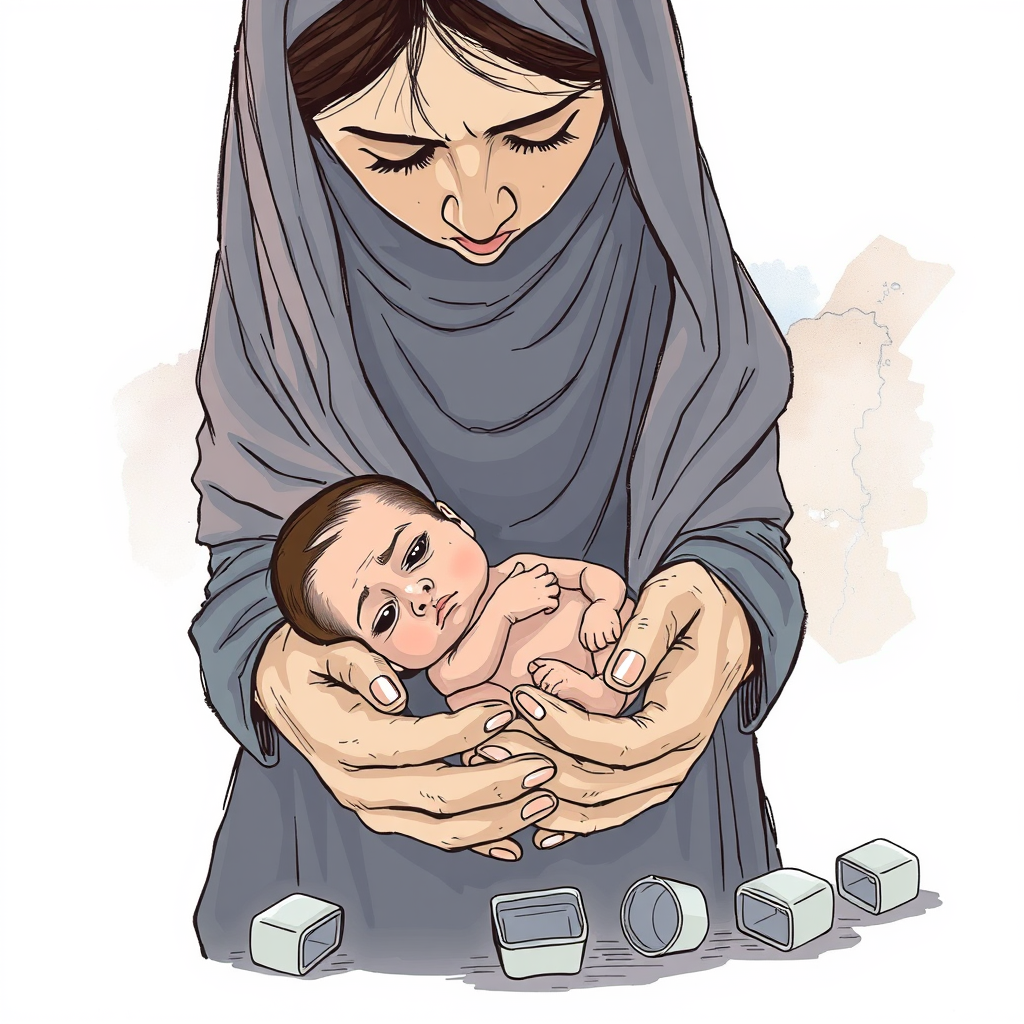Gaza Babies Face Imminent Death Without Aid

The United Nations has issued a stark warning that 14,000 babies in Gaza are at immediate risk of death within days without a substantial increase in humanitarian aid. This dire assessment comes as a limited number of aid trucks – around 100 following an 11-week near-total blockade – were permitted into the besieged enclave, a measure widely considered insufficient to address the rapidly deteriorating crisis.
U.N. humanitarian chief Tom Fletcher described the situation as “catastrophic,” noting that the five trucks that entered Monday represented merely “a drop in the ocean.” He emphasized the urgency of providing nutrition and care to vulnerable infants, acknowledging the significant risks aid workers face – including potential looting and Israeli offensive operations – but asserting that delivering baby food to mothers unable to feed their children is paramount. Prior to October 7th, an average of 500 aid trucks entered Gaza daily; that flow was halted following Hamas’s attack on Israel, which resulted in approximately 1,200 deaths and the taking of 250 hostages.
The current partial resumption of aid deliveries has drawn criticism from the U.K., France, and Canada, who jointly condemned Israel’s restrictions as “wholly inadequate.” These nations have called for an end to the military campaign and hinted at “further concrete actions” if Israel does not comply. Israeli Prime Minister Benjamin Netanyahu defended the restrictions, accusing Western leaders of rewarding Hamas and stating Israel will continue its operations until “total victory.” He formally announced plans for expanded military operations, including potential occupation of the entire territory.
Recent days have seen a surge in violence. Gaza’s Health Ministry reports at least 38 Palestinians were killed in Israeli airstrikes within a 30-minute span on Tuesday morning, adding to a death toll exceeding 53,000 since the conflict began. Over 300 Palestinians were killed in airstrikes in the 72 hours leading up to Monday, May 19th.
The escalating crisis is compounded by the deliberate targeting of critical infrastructure. Medical Aid for Palestinians has urgently called for the protection of Gaza’s healthcare facilities, particularly Nasser Hospital in Khan Younis, which has been repeatedly targeted and risks complete shutdown. The U.N. Office for the Coordination of Humanitarian Affairs (OCHA) reports strikes on Al Awda hospital in northern Gaza and the forced closure of clinics in Khan Younis.
OCHA also notes that new evacuation orders issued Tuesday affect 40 neighborhoods in Khan Younis – roughly 23% of Gaza’s total area – impacting thousands of people and hundreds of humanitarian facilities. Since the ceasefire ended in mid-March, over half a million people have been displaced across Gaza, according to the U.N.
The situation in Gaza is a profound humanitarian tragedy. While Israel has a right to defend itself, the scale of the suffering inflicted on the civilian population, particularly children, is unacceptable. The international community must exert greater pressure on all parties to prioritize the protection of civilians, ensure unimpeded access for humanitarian aid, and work towards a lasting resolution to this conflict. The current level of aid is demonstrably insufficient, and the targeting of hospitals and critical infrastructure constitutes a grave violation of international law. The world is witnessing a preventable catastrophe unfold, and a more robust and compassionate response is urgently needed.